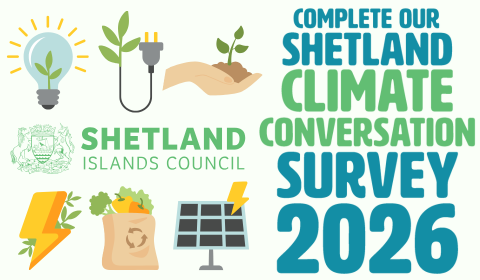Letters / Walking in a new direction
The disturbing proposals, now thankfully on hold, for providing education and care for the Wastside’s most vulnerable children reminds me of a famous short story by the celebrated visionary writer Ursula K. Le Guin called The Ones Who Walk Away from Omelas.
In just a few short pages, she invites us to consider carefully what is most important in life. The story describes a beautiful utopia which is so wonderful that we might not believe it could be real. And then we discover that the peace and pleasure of the rest of society depends upon a single child being imprisoned in a small cupboard and left in utter neglect.
While Shetland is a beautiful land with a strong sense of community, it is hardly a utopia. Nor are the proposals for our children as harsh as what she describes for the one child whose suffering allows the rest of the population to enjoy such delightful lives. But, there is a similarity here.
In order to make life easier for some, the genuine needs of others are being ignored. How does neglecting others makes life easier? Well, it means we don’t have to question the beliefs and systems we’ve inherited which are not working for the wellbeing of everyone.
Perhaps we might all see that the three mothers who are standing tall to bravely speak for their children are heroes. They are reminding us that any of us could have children whose need for love and care is beyond what our institutions have been designed to provide. And yet we might sit with the question Le Guin invites us to consider: does it make a difference if the child isn’t ‘ours’?
In a much more forthright way, the great James Baldwin wrote: “The children are always ours, every single one of them, all over the globe; and I am beginning to suspect that whoever is incapable of recognizing this may be incapable of morality.”
As we watch governments and other institutions around the world declaring, in effect, “we cannot afford to care” or, in other words, “we don’t want to give up control”, we might want to ask ourselves what kind of society we want to live in.
What are our true priorities in life? I understand Baldwin’s despair and yet feel optimistic, fully believing that what he calls morality, what we might also call conscience, is inherent in the human heart. Every one of us can feel the difference between what is right and what is wrong in a given situation.
And yet, we might have learned to ignore this wise inner voice in order to instead stay ‘safe’, be ‘realistic’ or otherwise accept the priorities of those we have learned to see as authorities.
Ursula Le Guin, on the other hand, both demonstrates and offers us the possibility of authority without supremacy. She does not impose an answer on the reader.
Instead, she invites us to consider what we might do if we found ourselves in Omelas. She asks us this, because, we, too, are living in a system that tells us that the neglect of some is necessary for the comfort for others.
A small and courageous minority of the population, she tells us, let go of certainty, comfort and privilege, choosing instead to follow their hearts. For in our hearts we know, everyone is to be included in this life. Each and every one of us is just as important and valuable as anyone else.
Personally, I hope that we might all somehow support and inspire each other to find courage and join those who are walking away from what isn’t working for everyone.
Every system can be transformed when we ourselves are willing to change. Perhaps we might want to get together with those who are learning and practising healthier ways of being that support us all to thrive, each in our own unique way. Just imagine how empowering, uplifting and even fun that could be.
We could reconnect with our childlike sense of curiosity, delight and wonder at life – just what good education encourages – and remember that cooperation, compassion and creativity in the face of challenges is possible with practice.
Br Vishwam Gurudas Heckert
Yoga Minister
Waas






















































































